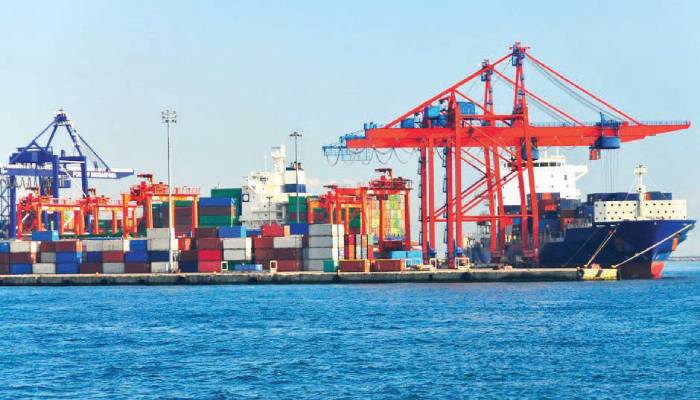
or

Maritime trade contributes a major chunk in International trade. As per the compilation by the International Maritime Organization (IMO), it is evident that 90 percent of the global trade is carried by sea. The sharp increase in the carriage of goods by sea is marked in 40 years. Lately, we are also witnessing the various conventions on maritime facilitating the safety and other codes for the carriers, ship owner and preservation of the marine life and the environment. The participating countries to the international conventions follow the terms of the conventions while enacting any shipping laws, rule or regulations for e.g. Indian Merchant Shipping Act 1958 is enacted in considering the Maritime conventions.
In order to make the International trade meaningful and successful, the contractual framework between the parties, the shipping law of the country and other legal framework has to be formed carefully.
We list the following few active shipping laws of the country and maritime conventions;
Contracts for the international sales of goods include the shipping terms and it is divided in three parts depending on the mode and place of delivery of the consignment sold: E terms (or ex works contracts), D terms (destination/arrival or delivered contracts); and shipping terms.
In International commercial sales on shipments terms physical delivery of the goods is not enough to discharge the seller’s duty as to delivery it also has a documentary duty to tender the documents agreed upon in the Contract. The duties to deliver goods and documents are separate and independent from each other and will be dealt in turn.
The Seller’s and Buyer’s duties are decided on the basis of the types of the contract, for instance if it’s a c.i.f ( cost, insurance & freight) the obligation to fix the vessel falls on the seller and whereas in f.o.b. such duty falls on buyer. However, contractual terms can also be amended at the convenience of the parties. Often in case of f.o.b. sales the seller becomes the agent for the buyer under the contract of carriage, the commodity invoice and commission for the carriage of cargo is invoiced separately.
Similarly, the passing of risk and the property in the goods depends on the contractual shipping terms. Under the Sale of Goods Act s. 32 (1) (SOGA) provides that where the seller is required to send the goods to the buyer, delivery of the goods to a carrier for the purpose of transmission to the buyer is prima facie deemed to be a delivery of the goods to the buyer. In the modern times, the ad hoc clauses are drafted in order to avoid any confusion or dispute over the claim.
The seller has physical and documentary duties to perform a sale contract (commercial), both duties are embedded in the sale contract under shipping terms.
Seller’s physical duties: seller has contractual obligations to deliver the contractual physical goods to the buyer as agreed in the contract and also according to the SOGA. Seller’s documentary duties: In order to get paid, the seller has to tender the documents to the buyer and bank as promised in the shipping terms under payment terms of sale contact. Documents to be tendered like commercial invoice and bill of lading etc. are listed in the sale contract. In common practice, under commercial sale contract, the parties agree for the buyer to pay via letter of credit (L/c) issued by the buyer’s bank. The Uniform Customs and Practice 600 (UCP 600) govern the operation of letters of credit.
To avoid time and cost, the parties should know their obligations under the contract and the passing of the risk attached to it. Specially, the payment terms has to be clear. At present, the major ongoing disputes under international commercial sale are related to payment terms for e.g. opening of L/c or defective document tender. In such cases, the attorney has to see what buyer’s remedy is and the seller’s right to cure a defective tender. The defective tender by the seller can be cured by retendering the genuine documents only if there is no time window available in the contract or if the document is tendered before the timeline fixed in the contact.
Often such maritime disputes are settled out of the court with the intention to build long term business relation between the parties. Also customarily, the differences between the parties are settled in various ways like entering into a new sale contract or proposing for discounts on the freight or whatever is favorable to the interested party.
Therefore, for an effective and successful international trade, the sale contract need to be carefully framed and the shipping documents needs to be properly examined or else a small loophole in the contract or document can result into loss or damage to either of the parties.
Pradeep K Jain is the Managing Partner at Singhania & Co., Mumbai Office, and an expert in Maritime and Corporate Law.
Nalini Mishra - Senior Associate

Lex Witness Bureau

Lex Witness Bureau

For over 10 years, since its inception in 2009 as a monthly, Lex Witness has become India’s most credible platform for the legal luminaries to opine, comment and share their views. more...
Connect Us:


The Grand Masters - A Corporate Counsel Legal Best Practices Summit Series
www.grandmasters.in | 8 Years & Counting
The Real Estate & Construction Legal Summit
www.rcls.in | 8 Years & Counting
The Information Technology Legal Summit
www.itlegalsummit.com | 8 Years & Counting
The Banking & Finance Legal Summit
www.bfls.in | 8 Years & Counting
The Media, Advertising and Entertainment Legal Summit
www.maels.in | 8 Years & Counting
The Pharma Legal & Compliance Summit
www.plcs.co.in | 8 Years & Counting
We at Lex Witness strategically assist firms in reaching out to the relevant audience sets through various knowledge sharing initiatives. Here are some more info decks for you to know us better.
Copyright © 2020 Lex Witness - India's 1st Magazine on Legal & Corporate Affairs Rights of Admission Reserved